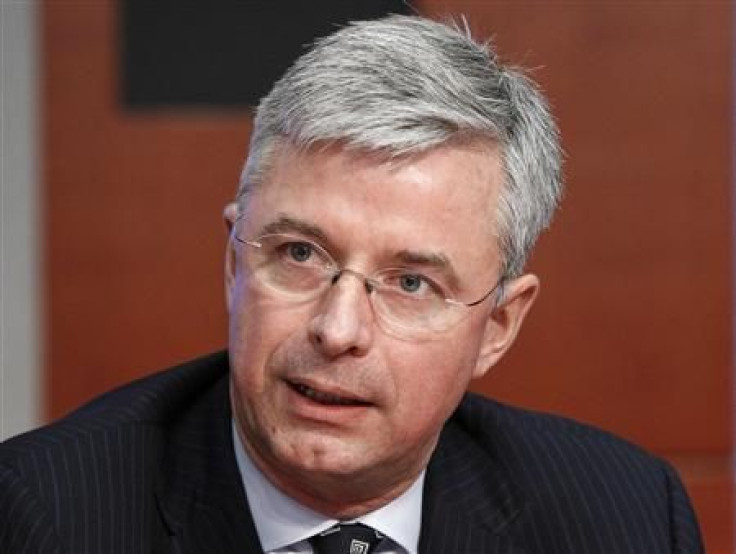Best Buy Holiday Sales Were Down, But With Some Indication CEO Hubert Joly’s Rescue Strategy Is Having A Positive Effect

Best Buy Stores Inc. (NYSE:BBY) sales fell over the holidays, but for a troubled retail electronics chain trying to reinvent itself under profound challenges the hemorrhaging was less than expected.
“There were some signs of stability. You can point to some as easier aspects of their Blue Review plan that have had a positive impact,” said senior retail analyst for Morningstar R.J. Hottovy, referring to the company’s comprehensive turnaround strategy that was announced in November, which includes accelerated efforts to improve the integration of the company’s e-commerce operations.
Some of the elements of the strategy were already in play during the holiday season while others will take longer to take effect, such as investment in imporving employee training and customer engagement and working with vendors to better position Best Buy as a preferred partner.
Same-stores sales, a key metric for gauging a retailer’s performance, declined 1.4 percent in the nine weeks ended Jan. 5 compared to the holiday sales period in the previous year, pulled down by a sharp 6.4 percent drop in international sales. The company’s share price has lost 6.6 percent of its value in that same time period. The stock price bounced up on Friday’s announcement.
Domestic sales were flat, but online domestic sales revenue rose 10 percent to $1.1 billion. Best Buy’s website ranked as one of the most-trafficked retail websites during two of the top shopping days of the year: Black Friday and Cyber Monday.
"While it will be a journey with ups and downs, we are focused on becoming an increasingly effective multichannel retailer and engaging with the tens of millions of consumers who shop us online and in-store," said company CEO Hubert Joly in the announcement.
Sales were down, but considering Best Buy’s dismal third fiscal quarter ended Nov. 3 – when the company reported an earnings per share of 3 cents on earnings of $10 million – the performance over the holiday season shines by comparison.
Best Buy also downgraded its estimated cash flow for the year to $500 million from between $850 million and $1 billion it predicted in November due to earlier-than-expected receipt and payment of inventory purchases for the new year.
What does this mean for the ongoing quest by company founder and primary shareholder Richard Schulze to take the company private?
“It’s probably a small incremental positive for him,” said Hottovy. “It shows that there can be improvements in the business. It could help private equity managers who are on the fence (about participating in any buyout offer).”
Schulze, who founded the company in 1966, owns 20 percent of the shares. He has reportedly approached private-equity firm partners Apollo Global Management LLC, Leonard Green & Partners LP and TPG Capital LP. Cerberus Capital Management LP has also been named as being in negotiations. His top advisers for the deal include former Best Buy CEO Brad Anderson and former company President Al Lenzmeier.
In late August the 72-year-old billionaire was given 60 days to review company records, collect buyout partners and make a bid. That deadline was extended to mid-December, when a third extension was granted. Schulze now has between Feb. 1 and Feb. 28, the day the company’s fiscal fourth-quarter earnings report is scheduled to be announced, to make an offer.
The original price Schulze floated last summer was $24 to $26 a share, or about $8.5 billion, not including the company’s debt. At the time Best Buy was trading at around $20 a share.
Best Buy was trading up $1.49, or 12.2 percent, to $13.70 in Friday morning trading.
© Copyright IBTimes 2024. All rights reserved.












